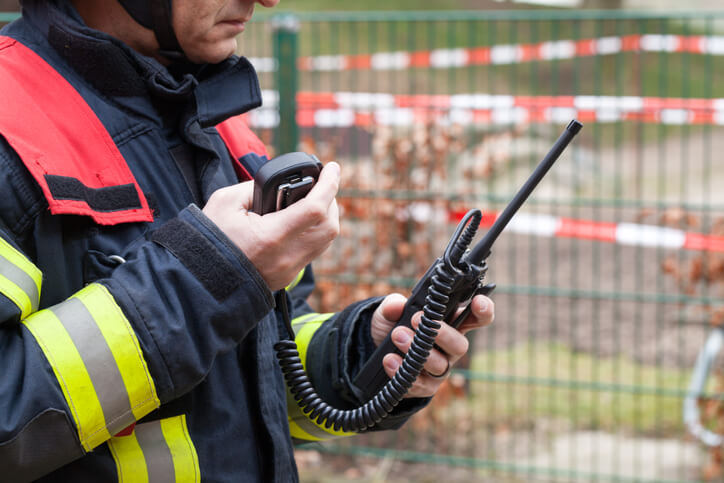
Power outages can strike without warning. For some, they are a minor inconvenience that lasts only a few moments. But some outages can last for many days, endangering the health of people who depend on ventilators and other electrical devices to remain healthy and alive.
Technology has revolutionized the field of emergency medicine, but it has also made EMS providers increasingly dependent on technical, electricity-powered solutions for patient care. As a result, a power outage can spell disaster for both you and your patients without adequate planning.
In 2020, extreme weather and other events meant 1.33 billion power outage hours, up 73% from the year before. So, the question isn’t whether a power outage will strike, but when. Here are five tips to prepare your EMS unit for a power outage.
Know the Health Risks of a Power Outage
Even a brief power outage can pose serious health risks to your community. In extreme weather, heat and cold pose serious dangers to infants, the elderly, and anyone with a chronic medical condition. Neighborhood cooling or warming centers can help mitigate these risks. Some other challenges associated with power outages include:
- Access to emergency medical care when people cannot charge their cell phones or use their home phones.
- Access to electrically powered home health devices.
- Emergency care for patients experiencing medical emergencies, particularly if your local hospital experiences an outage.
- Exacerbation of some mental health conditions, particularly PTSD and anxiety disorders. This can lead to mental health crises.
Educate Your Community
Planning for a power outage begins well before the outage itself and heavily depends on your ability to educate and inform your community. Consider putting on an annual seminar about disaster preparedness for power outages. Some points to highlight include:
- Family disaster plan. Families should have a disaster plan in place that includes a meeting location.
- Backup power options. Encourage community members to have a plan for keeping food and medications cool.
- Emergency health care. Community members who depend on electrically powered medical devices should talk to their doctors about backup plans.
- Evacuation plan. Sometimes it’s necessary to leave home because of a power outage. Community members should have a bag with basics—medicine, cash, food, baby supplies—ready to go in the event of an evacuation.
You should also talk about your agency’s disaster preparedness plan, as well as the easiest methods for getting in touch with your agency if there is a serious emergency.
Have an Interagency Preparedness Plan
Disaster planning for EMS providers demands a comprehensive interagency plan. Work with firefighters, police, government agencies, public and private health providers, and other local organizations to plan a joint disaster plan. Some questions to address include:
- What is the strategy for reaching and tending to vulnerable community members who depend on medication or medical devices?
- How will agencies communicate in the event of a power outage?
- What natural disasters are most likely in your area?
- How has your agency previously handled power outages? What worked and what didn’t?
- Are all agencies fully stocked with the supplies they need?
- What information do community members most need about disaster preparedness in your area?
- How can you preserve the safety of first responders in the event of a long-term power outage, which may trigger panic and looting?
- How will you manage staffing needs in the event of widespread health issues following a power outage?
Operate Safely Without Power
Power outages are scary, especially to people with few or no resources. Panic is the inevitable result. During longer power outages, this panic can increase crime, especially looting and violence so it’s important to have a plan for keeping first responders safe. You may need more people to respond to emergencies than you would otherwise use. It may also be important to work with your local police department to assess threats and plan accordingly.
Prepare with the Right Equipment
The right equipment can save lives during a power outage. Some items you must have on hand include:
- Extra water during extreme temperatures.
- Warming blankets to prevent hypothermia.
- Batteries for all devices, as well as backup batteries.
- Battery-powered chargers for cell phones.
- A battery-powered radio.
- A battery-powered emergency suction machine. These devices do not need to be plugged in, making them ideal for a power outage. They also make it easier to travel to the patient rather than risking transport to the ambulance.
- Testing equipment for all rescue devices, especially your airway management tools.
The right airway management equipment can navigate a wide variety of power outage emergencies. For help selecting the right portable battery-powered device, download our free guide, The Ultimate Guide to Purchasing a Portable Emergency Suction Device.
Editor's Note: This blog was originally published in May, 2019. It has been re-published with additional up to date content.
















